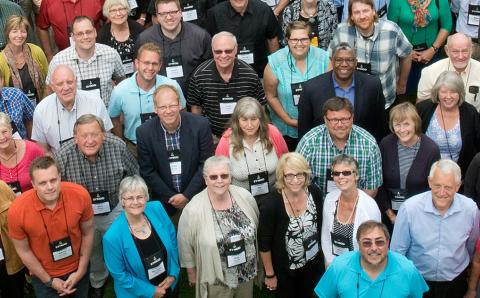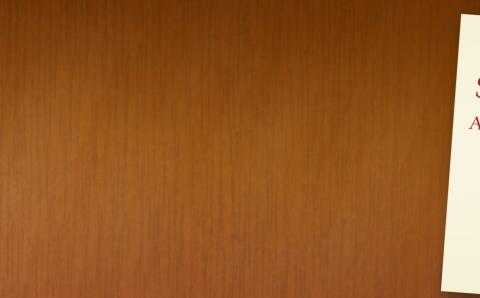We were out walking in the woods, my friend and I. It was the first snowfall of the season. He ran up to a large cedar tree, stretched out his hands, and exclaimed with great emphasis, “This is amazing!” And it was. We walked slowly. Not just because his legs were small and hindered by snow pants, but also because he stopped to slide on the icy puddles, pick up a crinkled Oak leaf, and run off the trail for a better view of the frozen river. But delight is not only for 4-year-olds.
Inspired to live in truth and spurred on by a shadowy history of dominion, the idea of stewardship has nestled its way into Christian circles. We understand that the mandate in Genesis requires our care and cultivation of God’s creation. I am glad of this, yet as an environmental educator and a Christian, I am afraid. I observe that we are becoming burdened by the enormity of the restoration task even as we grow more and more distant from our natural world. Love guides us more fiercely than guilt, and the obligation of stewardship is too small to capture the relationship God meant for us to have with creation.
As Christians we are familiar with biblical stories that include the non-human creation. Adam actively knew and named the splendor of his surroundings. Job’s experience with the mystery of creation helped him begin to know the mystery of God. In the psalms, David reminds us that God is the Creator, and the creation is constantly praising him.
We know that God’s divine revelation is not limited to the Bible. One of the ways God reveals himself is through creation (Ps. 19:1-4; Rom. 1:20). Natural revelation is what we name that. But we experience it as the scent of fall leaves, the brilliance of a sunset, the feel of a caterpillar’s soft skin. As a Christian, I wonder if we are limiting our relationship with God by allowing a growing disconnect between us and the rest of creation. As an educator, I struggle. How can I teach stewardship if the children do not yet love the earth? And how can they love the earth if they do not experience it?
To be clear, nature is not all beautiful. The truth is that nature groans and twists with the pain of suffering and starvation—“wonderful things wasted,” in the words of Annie Dillard. It is worms on the sidewalk, ducklings eaten by snapping turtles, birds with broken wings, maggots in wounds. There is beauty and horror. So what then?
On a brilliant spring day, I was out teaching a group of young children in a field of dandelions. With his 5-year-old arms outstretched and his face cracked in a smile, one of the children exclaimed loudly, “Look at all the daffodils!” And so, perhaps, he was inviting us to delight in what is beautiful and imagine what could be.
The barrier between heaven and earth has been described as a veil. This veil covers the earth, yet in some places it is stretched quite thin. In the Old Testament, the thin place was over the Holy of Holies. Theologian Cornelius Plantinga Jr. suggests that today the thin place is wherever wrong things are being made right. I like to imagine we can pull down this veil in our areas of influence. And I believe that part of the thinning of this veil is the practice of delight.
Delight is a thing that also needs nurturing. I am reminded of that by my young friend’s fascination with the cedar tree, a girl who catches me mid-sentence to show me a buttercup, and the child in the backseat who points and exclaims, “Look!” with his face illuminated by the evening sun. These delighters remind me to set my face in the direction of the sunset, to listen to the voices of delight and imagine the daffodils. God delights in his delighters. Hands muddy, nets full, tumbling delight.
Delight is part of the new earth, a taste of what is to come. Perhaps stewardship follows delight.
About the Author
0
0
1
18
108
CRC Product Services
1
1
125
14.0Normal
0false
false
falseEN-US
JA
X-NONE/* Style Definitions */
table.MsoNormalTable
{mso-style-name:"Table Normal";
mso-tstyle-rowband-size:0;
mso-tstyle-colband-size:0;
mso-style-noshow:yes;
mso-style-priority:99;
mso-style-parent:"";
mso-padding-alt:0in 5.4pt 0in 5.4pt;
mso-para-margin-top:0in;
mso-para-margin-right:0in;
mso-para-margin-bottom:10.0pt;
mso-para-margin-left:0in;
line-height:115%;
mso-pagination:widow-orphan;
font-size:11.0pt;
font-family:Calibri;
color:black;}Meagan Mc Rae is an environmental educator and foster care worker. She attends Zion Christian Reformed Church in Oshawa, Ont.









